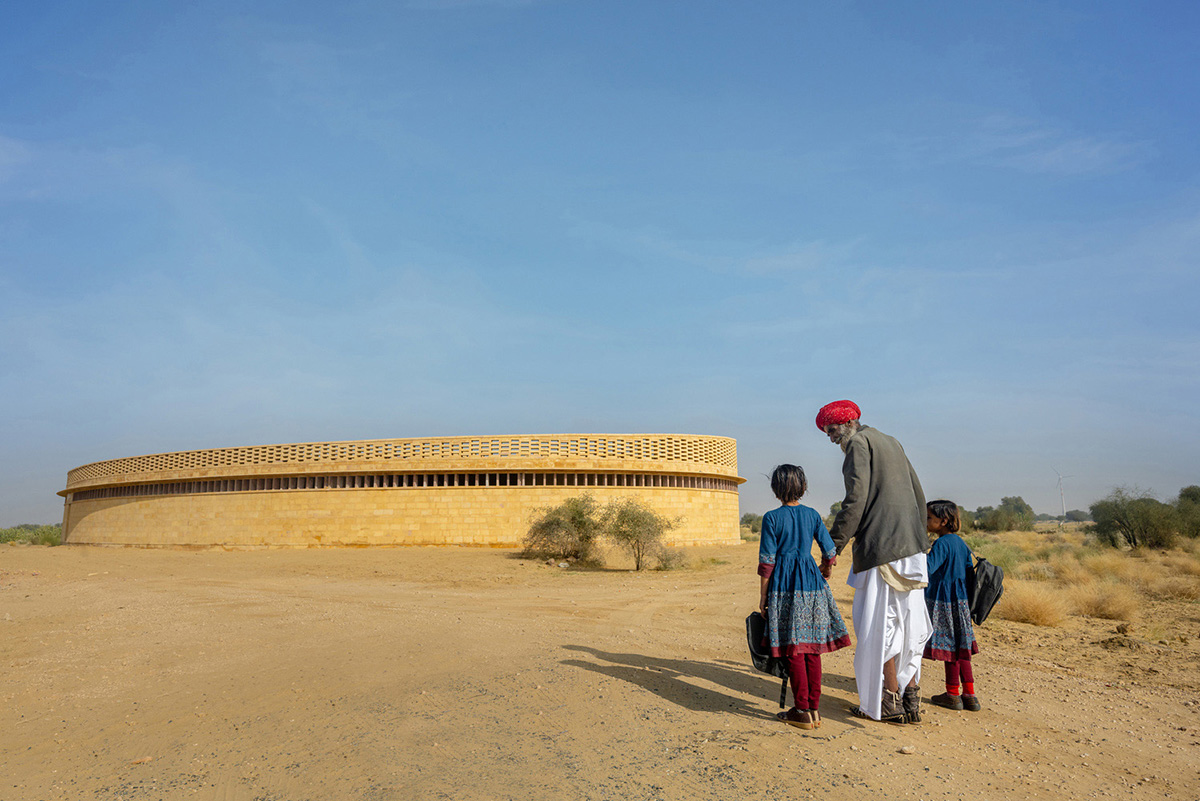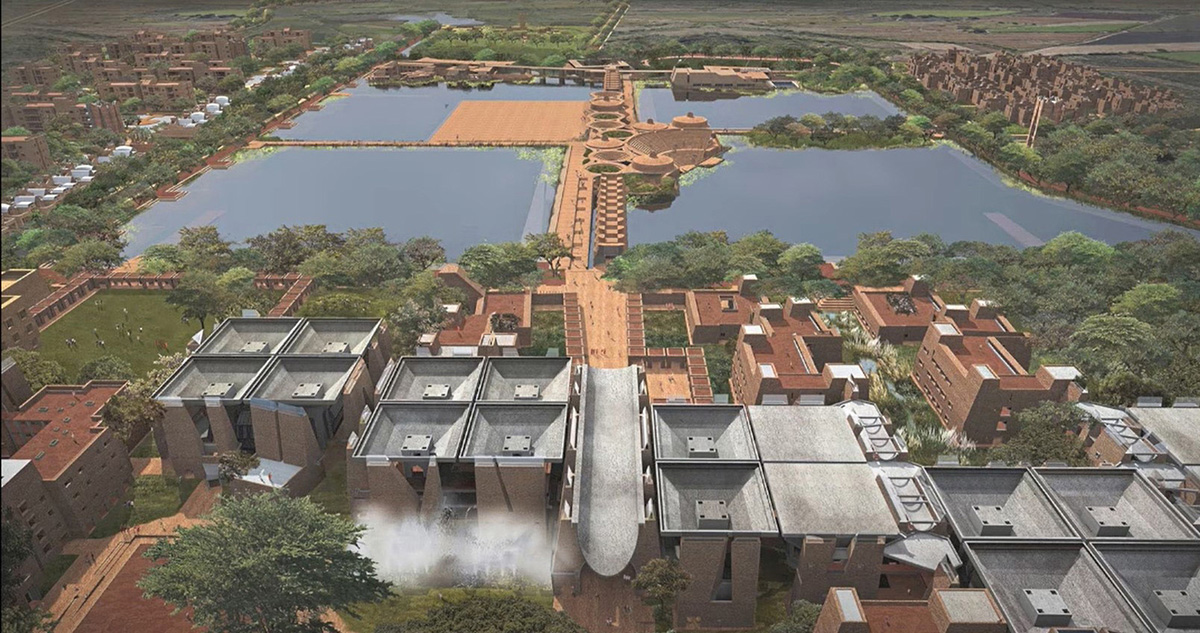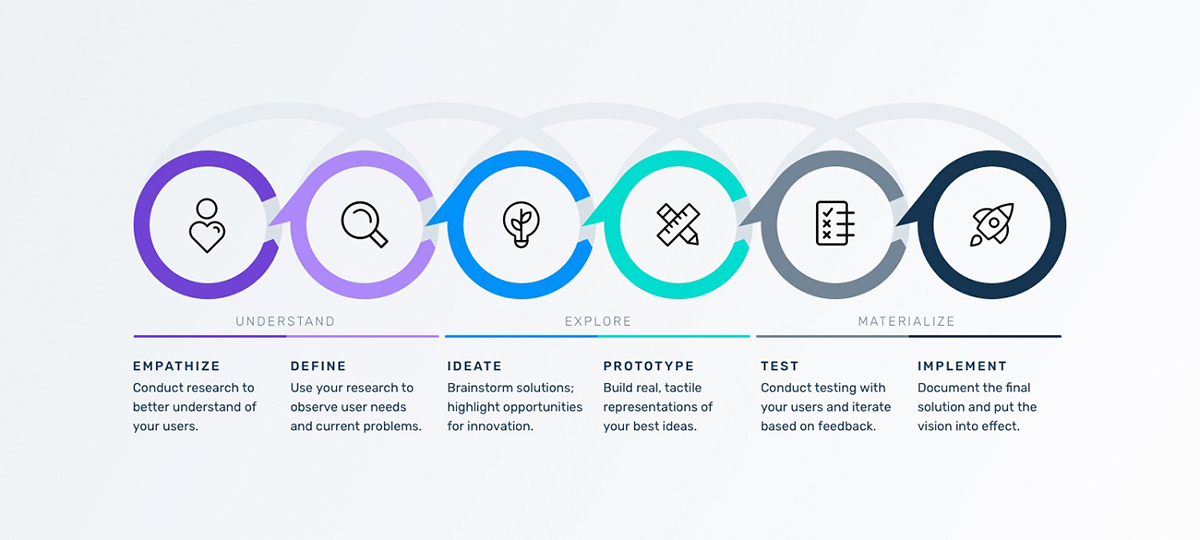Submitted by Rashi Jain
Philosophy of Ethics in Architecture
India Architecture News - Jul 03, 2022 - 18:40 12602 views

Ethics is the intellectual truthfulness and honesty that a person carries towards their work. Its morality is not about the rules in the virtual theories but about acquiring good virtues such as honesty, courage, justice, and kindness. As the social factors are changing, the obligations and notions around them are also changing.
In architecture ethics and ethical reflection is about design, the way we look towards design, think of what problem it is going to solve with design, and in particular what are the factors that constitute the relationship between the architect and those they are designed for. Pondering on this helps to formulate questions and doubts regarding the process, the way we speak, reason and look at this subject of ethics itself. One important question to ask is whether the architect is designing for their benefit or for the client's comfort.
Is the ideology that the architect is referring to while designing going to benefit the one they are designed for or is simply imposing the ideas giving it a modern outlook?. The relationship however is not one-directional and hence involves the ethics of the client as well.

I did not want the building (The Rajkumari Ratnavati Girls school) to function only as a school. Hence, a beautiful structure that represented womanhood was needed. Besides being an education center, the school will attract tourists and serve as a global platform to host events for women empowerment and global programs like Ted talks," he explains. - CITTA founder Michael Daube. Image © Vinay Panjwani
Some of the common ethics and approaches are curtailed to normative ethics including the point of consequentialism, relying on set procedures and predefined rules that have been shown to be impractical in complex situations when encountered and dealt with in a matter of course.
In design practice, the theory of ethics has varying qualities, which when discussed is more leading to general conclusions of any doing. To address this particular point, it is important to look at how we design. With the introduction of technology, the impact is still slow in the Indian context and one is unable to find solutions or justifies contemporary socio-environmental and cultural issues and systems.

Nalanda University's campus (please copy-paste this link on the browser: https://www.youtube.com/results?search_query=nalanda+university+vastu+shilpa+foundation) with state of art infrastructure celebrates the site, and its sacred connections using the old technological techniques combined with new tools making it a net-zero sustainable campus while reclaiming its lost glory. Image © Nalanda University Design
In describing systems, processes, and design thinking the most possible focus is on the ethics, principles, characters, and complications of these which designers encounter with environmental justification. Learning moral philosophy is crucial to confront the challenges they face in the integration of the design with sustaining the surroundings around it.

The Design Thinking Process which has a human-centered approach has a primary focus on empathy to uncover the deep needs and insights of users to build an accurate mindset when considering possible solutions is also applicable to Architecture and Design. Image © Stephanie Baseman
While debating on the ethical qualities of building themselves, architecture and design practice is an area of concern in their own right. Going beyond professional ethics and its limitations, ethics go beyond this in work to cause environmental impact. The decisions taken by the designer and those who get affected by these decisions are the ones who can establish norms. It also questions the ethics and relationship of the processes through which buildings are constructed or produced.
In our day-to-day life, it's our ethical responsibility and honesty to take a consensus from the ones who get affected by our decisions. Though in some specific contexts of healthcare, participative design methods have bridged this relationship.

Chennai streets for people. Image © ITDP
The ethical theories are based on regulating theories and moral codes which guide ethical actions by inviting reflection on how they themselves would feel or propagate in that similar situation rather than taking the complex path of self - justification.
Modernism or modern movement and architectural critiques pursue their own agenda at the expense of those it is designed for. Intervening in the lives of others in a positive way is the impact that architecture is meant to create and is one of the major principles of this discipline: one would not like any practice which does not create new significant possibilities of viewing the world, dwelling with ease and constructing outcomes in new possible ways.

They are not houses but homes (Aranya low-cost housing) where a happy community lives. Image credit © Vastushilpa Foundation
Designers are not always effective ethically, as it is claimed that many times the ideas are authoritative, which creates a gap in the experience of the user and the thought that the designer wants the user to experience a built form would give. Design and architecture cannot work in isolation and therefore involves participation and application with other several disciplines which makes it multidisciplinary in approach which every designer should think and act in that particular manner.
Top image: The school will serve more than 400 girls, from kindergarten to class 10, who are below the poverty line residing in the mystic Thar Desert region of Jaisalmer in Rajasthan, India -- where female literacy barely touches 32%. Image credit © Vinay Panjwani.
